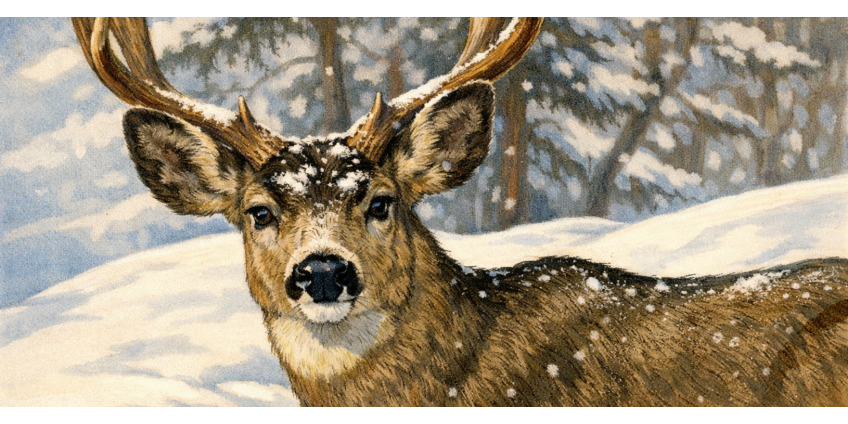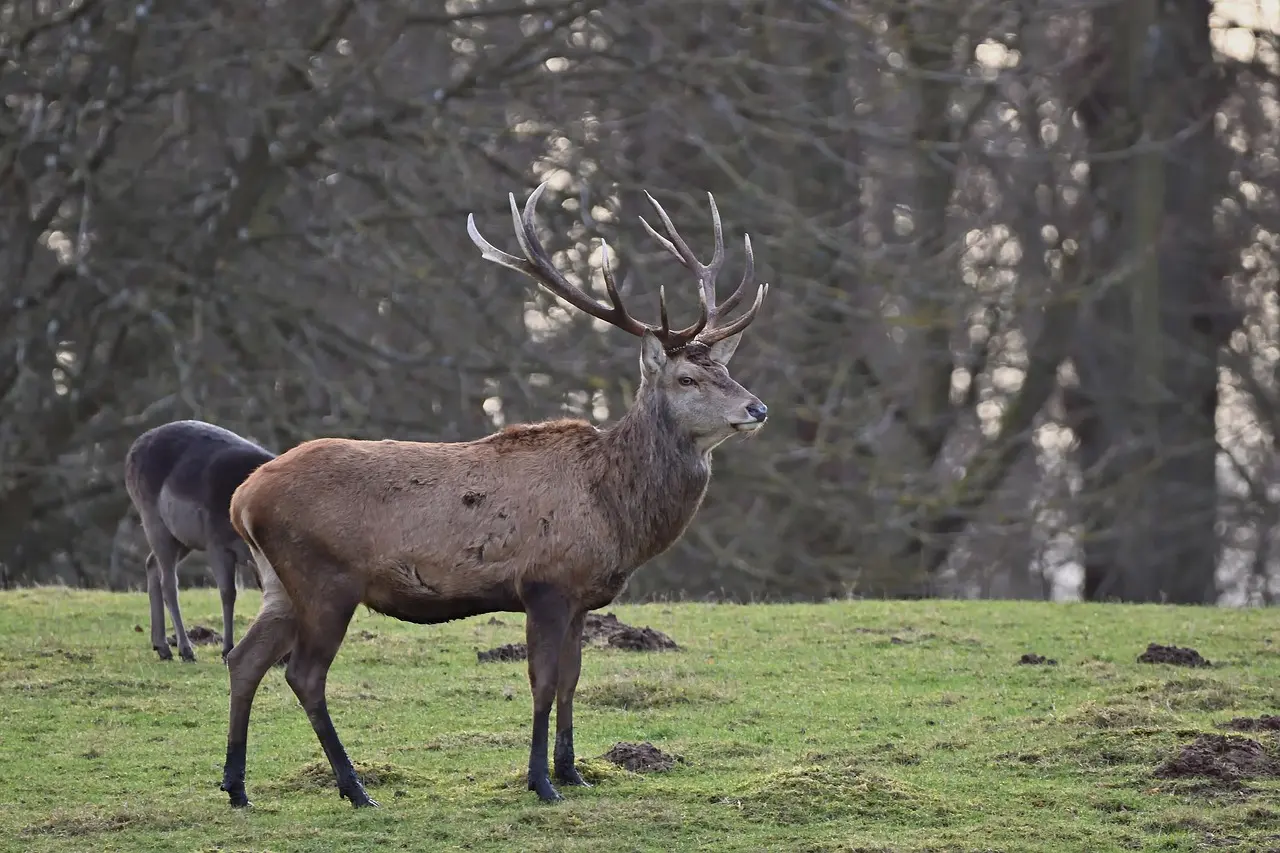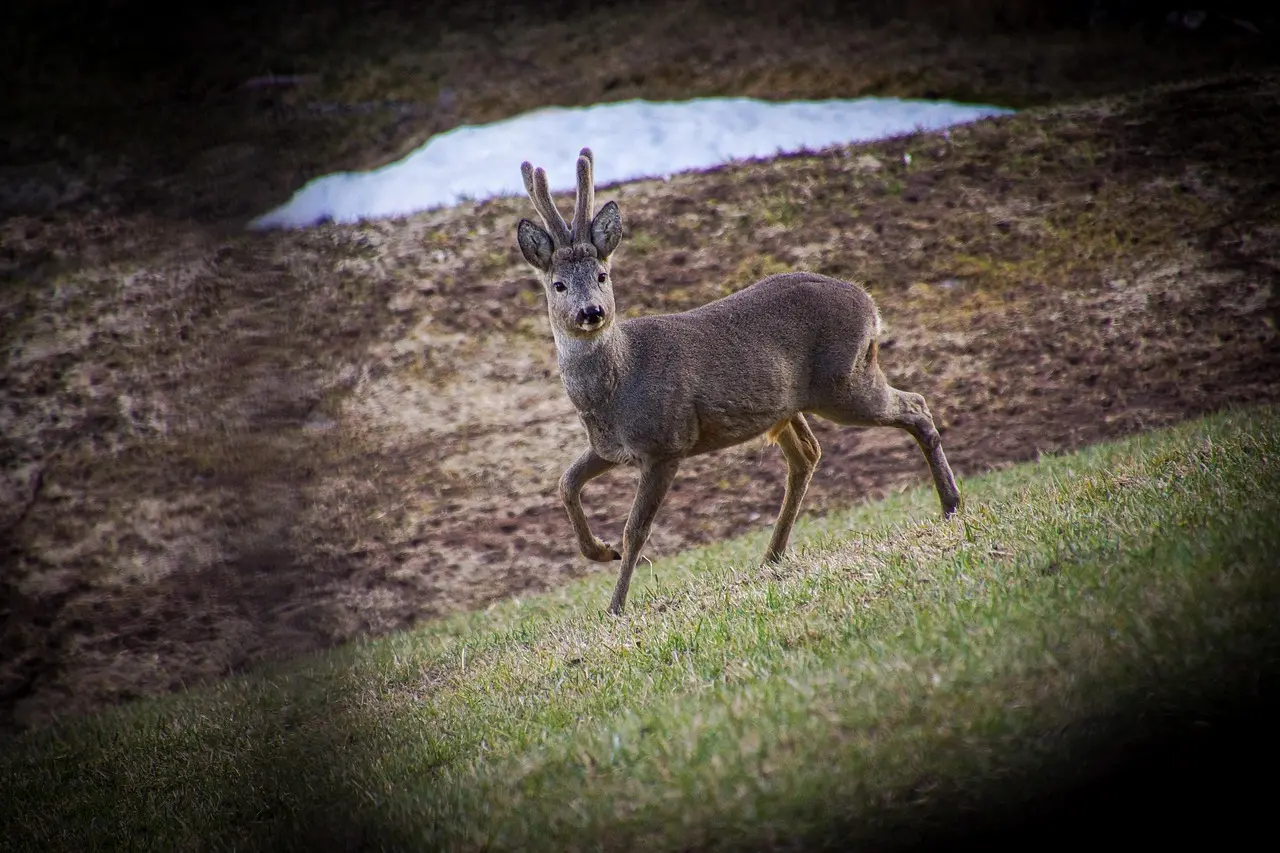
This product is not exportable outside the United States.
By adding this item to cart, you agree and acknowledge the Export Policy and confirm that you are a person in the United States with no intentions to illegally export the device.
This product is not exportable outside the United States.
By adding this item to cart, you agree and acknowledge the Export Policy and confirm that you are a person in the United States with no intentions to illegally export the device.


0

0


A deer is a beautiful animal that every novice and experienced hunter aspires to hunt. However, due to its secrecy, timidity and well-developed senses, it is always challenging to do this. Especially if you go hunting after sunset, visibility is significantly worse at this time of day, and deer become even more cautious than during the day. But do not lose hope and faith in success prematurely. If you take the best night vision scope deer with you on a hunt, your chances of getting valuable game will be much higher.
| Model & URL | Sensor | Base Mag | Detection | MSRP |
|---|---|---|---|---|
| AGM Adder TS50-640 | 640×512 / 12 µm | 2× | 2 600 yd | $1,895 |
| AGM Secutor TS25-384 | 384×288 / 17 µm | 1.2× | 500 yd | $1,809 |
| AGM Spectrum LRF 4K | 4K Digital | 3.5× | 1093 yd | $1,295 |
There is no clear winner in the thermal vs night vision deer hunting competition. Due to its ability to detect heat, thermal imaging will be more effective in conditions of minimal illumination or complete darkness. It will also be a priority option in adverse weather conditions. Night vision, which works on the principle of light amplification, will show itself better on a cloudless night. It will also be more effective in cases where accurate identification of the animal species is necessary. The lack of a clear winner in the confrontation between thermal and night vision deer hunting means that a hunter should use both technologies simultaneously (for example, combining deer hunting night vision goggles with a thermal imaging sight).
During night vision deer hunting, a low-light deer scope with a 384- or 640-pixel thermal sensor is often used. Both are effective, but they have differences in their detection ranges. Because the 384 sensor creates images with a lower resolution (384x288), it cannot detect small temperature changes at a distance (most low-light deer scopes with such a sensor have a detection range of 300 yards to 500 yards). At the same time, the 640 sensor allows for the formation of images with a resolution of 640x512. Thanks to this, it is suitable for long-range detection of game.

Night vision deer hunting is legal in some states but not in all, so it is essential to check the laws of the state where the event is being held. In most states, deer hunting is prohibited between one hour after sunset and one hour before sunrise. However, some other animals are legal to hunt at night (e.g., coyotes, foxes, raccoons, skunks, opossums, etc.). Unlike night vision deer hunting, hunters of some other game may also use night vision devices without any restrictions.
| Name | Allowed/Prohibited |
|---|---|
| Night hunting | Prohibited in Nevada, New Mexico, Hawaii and allowed for some game in other states |
| Night vision devices | Prohibited in Oregon, California, Nevada, Arizona, New Mexico, Kansas, Missouri, Tennessee, Alabama, Delaware, Rhode Island, Alaska, Hawaii and allowed for some game in other states |
This thermal imaging scope is an excellent option for nighttime deer hunting. It utilizes an IR sensor with a resolution of 640x512, which provides high-quality images in all lighting conditions. The lens, with a focal length of 50 mm and an aperture of f/1.0, allows the detection of targets from a distance of approximately 2,800 yards. This will enable hunters to track deer without having to approach them. This model also has a digital zoom of 2.5x-20x. It allows for a visual approach to the target and accurately aims before making a shot. In the AGM Adder TS50-640 review, it is also worth noting the scope’s wide functionality. It can measure distance, record video, and transmit data over Wi-Fi.
AGM Secutor TS25-384 is one of the best for deer hunting. It is equipped with a thermal sensor that has a resolution of 384x288, which works effectively at both short and medium distances. The device's capabilities enable the detection of thermal signatures from a distance of approximately 1300 yards. This is particularly important for hunters trying to approach timid and cautious animals like deer. An essential advantage of the sight is its compactness and light weight. Thanks to these characteristics, it is convenient to transport to the hunting site and use in action. An additional plus is increased protection from various external influences. It makes the sight available for use in any weather.
This budget deer night-vision scope is a versatile device that works effectively in all lighting conditions. It is equipped with a CMOS sensor featuring a resolution of 3840 x 2160, allowing for precise and detailed images. Being one of the best night vision scope deer in its category, the Spectrum LRF 4K stands out with a wide zoom range (3.5x-28x). This allows hunters to observe and aim at animals even from a very long distance. Additionally, this night vision scope for deer hunting offers several valuable features. It can record video with sound, work effectively in heat and cold, transmit data via Wi-Fi networks and much more.

Using various NVDs during deer hunting provides hunters with several advantages. Using them, you can make the event safer, more comfortable, and more successful. At the same time, there are also several disadvantages. Knowing them, you can find ways to compensate for all the disadvantages in advance or even turn them into advantages.
It is impossible to hunt at night without night and thermal imaging optics. Only with the help of such auxiliary devices will it be possible to ensure normal visibility in conditions of insufficient light. Their use will help to quickly find an animal, aim and make an accurate shot. In addition, thanks to night and thermal imaging optics, it is possible to increase safety and eliminate various troubles.
Both technologies are equally helpful for hunting. Thermal imaging enables the detection of even well-camouflaged animals. It also allows you to hunt in complete darkness or deplorable lighting conditions (such as cloudy weather, fog, or rain). Night vision becomes useful when it is necessary to identify animals and examine various small details. It works most effectively in cloudless weather.
Thermal imaging sights are ideal for nighttime use. They should have an optical magnification of more than 3x, an increased detection range, and a high-resolution IR sensor. At the same time, even the best IR for deer hunting will not be able to provide the same detail as conventional night vision scopes. Therefore, such optics can also be used for deer hunting.
When choosing a scope for deer hunting, consider the detection range, sensor resolution, display characteristics, size, weight, and degree of protection from various external influences. In some cases, you should also pay attention to the availability of additional options (when choosing a scope for a specific type of hunting) and the compatibility of the models in question with the existing weapon.
An NV scope enables a hunter to see in low-light conditions. With it, he can quickly find animals, identify them and aim for an accurate shot. Additionally, with the aid of such optics, it will be possible to detect various surrounding dangers (for example, the approach of a large predator), locate other hunters, and so on.
For deer hunting, it is best to use night vision scopes with more than 3x magnification. In this case, it will be possible to aim and shoot from a long distance. Thus, the probability of scaring off the deer will be minimal, and the chances of achieving success will be maximal. The higher the magnification, the closer you will be able to approach the animal visually.
Contact us, and our specialists will select the best night vision scope for you.
Modified: Jan 13, 2026 | 03:53 pm
Table of contents